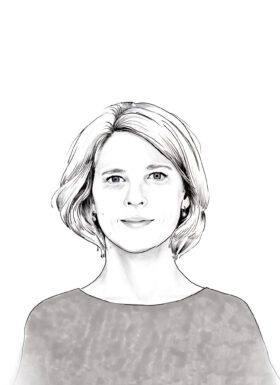-
Ammodo Science
Award for groundbreaking research2024 -
Ammodo Science Award
The Ammodo Science Award for groundbreaking research is intended to stimulate potentially groundbreaking research. Such research is usually the result of team work, and for that reason this Award is for research being carried out by a group of researchers working together, and is intended to recognise the contribution of every member of the group. The Award is presented every two years in four scientific domains: Biomedical Sciences, Humanities, Natural Sciences and Social Sciences.
-
Nomination & Selection
Each edition, the Ammodo Science Award for groundbreaking research includes a cash prize of 1,600,000 euros for each of the science domains Natural Sciences and Biomedical Sciences and a cash prize of 800,000 euros for each of the science domains Humanities and Social Sciences. The rectors of the fourteen Dutch universities affiliated to Universities of The Netherlands (UNL) may nominate a maximum of one research project per scientific domain.
-
Winners
The Ammodo Science Award for groundbreaking research focuses on potentially groundbreaking research and ensures that all researchers involved in the winning project are recognised and rewarded.
Lenneke Alink
Laureate

Lenneke Alink (1978) studied developmental psychology at Leiden University. She obtained her PhD in 2006 at the Leiden Institute of Education and Child Studies. She is currently Full Professor and Scientific Director of this institute.
At the beginning of her career, Lenneke Alink was awarded a Rubicon grant for a two-year stay in Minnesota (USA). In 2014 she received a NWO (Netherlands Organisation for Scientific Research) VIDI grant. In 2015 Alink became a member of De Jonge Akademie (the Young Academy, part of the Royal Netherlands Academy of Arts and Sciences).
WebsiteResearch focus
Lenneke Alink studies family situations, parent-child relationships, individuals and their environment to understand both the risk factors and the causes and consequences of child maltreatment.
Comprehending the incomprehensible
Every year, more than 100,000 children are victims of maltreatment in the Netherlands. This is a horrific number that everybody would like to see reduced. Unfortunately, child maltreatment is a complex issue and not enough is known about the exact causes and effects. Lenneke Alink is committed to changing this; she aims to unravel causes and consequences of maltreatment.
Alink uses knowledge and methods from the pedagogical sciences, neurobiology, psychology and law in her work. This combination results in multiple levels of insight. For example, she studies processes within parents themselves that may play a role in child maltreatment. This led to a discovery by Alink and her team that a weaker response of the parents’ stress system to the crying of an infant could be an indication of child maltreatment.
In addition, Alink and her research team study the role of the meaning that parents attribute to the behaviour of children. Parents who harshly discipline their children appear to have a more negative interpretation of their behaviour. This means there is an increased likelihood that they see, for example, the dropping of a drink cup by a 2-year-old as naughty or annoying. She also studies the possibly causal role of stress in these processes.
Alink also focuses on consequences of experiencing maltreatment, for example when it comes to parenting own children. In her research she tries to better understand this intergenerational transmission of parenting.
All of these facets contribute to a better understanding of child abuse and child neglect, and of the underlying processes in terms of causes and consequences. Of course, this also provides starting points for tackling this horrific problem.